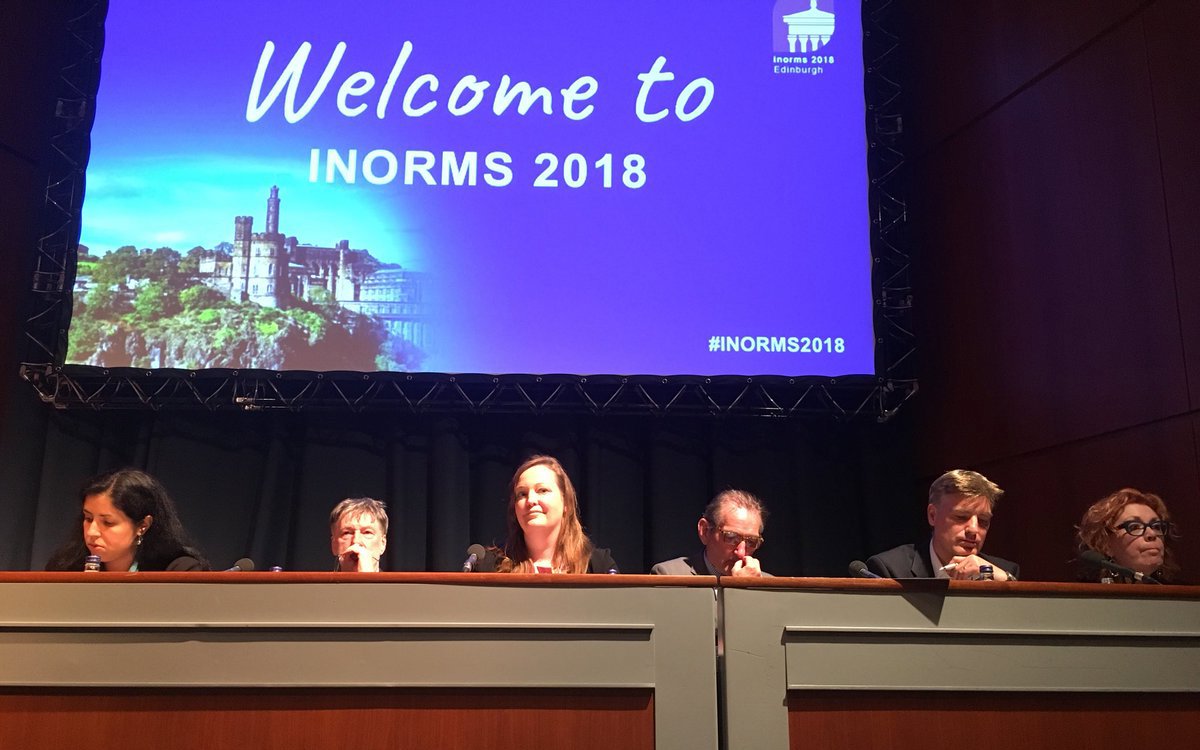

Ben Prasadam-Halls
Ben Prasadam-Halls is Director of Programmes at the ACU.
It's been encouraging to hear the level of interest in developing international collaborations with researchers from the global south at the 2018 INORMS congress in Edinburgh – a conference that attracted 1100 people involved in research management from 50 countries. Research managers from developed countries – and from the UK in particular – seemed genuinely interested in how to structure these collaborations in an equitable way. Sadly, those fine intentions didn't match with some of the experiences that were shared by their counterparts from African and other developing country universities.
Creating equitable partnerships
During a question time panel at the beginning of the conference I argued that a key step in developing equitable and effective partnerships was to move from agreements between individual academics to institutionally based collaborations. To do this, I claimed it was imperative to engage the research office of the southern partner university in a timely and meaningful way during the proposal development stage. I was rather taken aback when one of my fellow panellists dismissed this notion saying that "it's easy to get sign-off". Perhaps I hadn't explained myself clearly enough or maybe I had assumed too much familiarity with what a research office does.
Either way, this is my attempt to better explain what I meant and why there is so much more to it than getting sign-off.
Arguments about the value that a good research office can add to a proposal were won long ago in the UK. So I should hardly need to mention the benefits they can bring: in terms of enhancing the quality and administrative viability of a proposal; of ensuring that costings are accurate; that all eligibility and compliance issues are addressed and any thorny issues around IP, overheads and contracts are resolved early on. And this is not to mention helping to facilitate stakeholder engagement and consultation or plan activities to deliver impact and uptake.
But the points I made in the panel discussion were in response to a question about equity. At INORMS, we heard of some appalling examples of bad practice. We heard how southern researchers within a 'collaboration' have been treated as little more than the hired help: sent out to do data collection using protocols and instruments which they had no input into designing; being omitted from the analysis or interpretation and often excluded from publications. Hearing these stories, calls for the "decolonisation of research" seem far from hyperbole. Researchers should be wary indeed when invited to join a project and a research manager fighting their corner can offer them some strong protection.
Capacity strengthening
But there is also an important strategic role for the research office to play. A distinctive and laudable element of the GCRF is the introduction of research capacity strengthening – a concept new to many in the UK research sector, where there is patchy understanding of how this can be done well. As anyone working in international development will tell you, designing good capacity strengthening must start from an understanding of both existing capacity and where you want to get to.
- Who within a university has the best understanding of their existing research capacity?
- Who knows where the gaps are?
- Who is most intimately familiar with the institution's research strategy and the priorities for realising it?
It seems obvious doesn't it? Failing to engage the research office meaningfully in the proposal design deprives research partners of the opportunity to ensure that their university can derive real benefit from the proposed collaboration. Valuable opportunities for strengthening capacity will be missed. For example, instead of offering to supervise a PhD from the UK, why not think of co-supervision – perhaps backed up by working with the Dean of Postgraduate Studies to design in-house training in supervision skills and offering to mentor new supervisors? But such an approach is only possible when planned jointly with the central administration of the partner university.
Create a meaningful research network
So how can we make sure that this happens? Something of a culture change is required. For our ACU members we can help make connections, but there is more to be done. Research funders should encourage potential applicants to engage their partners in this way and ensure that enough time is made available for it to happen. Research managers at the lead institution should reach out to their peers within their partner universities, knowing the researchers at both ends of the collaboration may not think to.
University leaders in developing countries looking to collaborate in international partnerships should invest in a strong research office, backed by a clear research strategy and a plan to strengthen capacity. Research managers in those universities should continue to explain to their academic colleagues the value they can add and find both sticks and carrots to persuade them to bring them into discussions early.
The role of the research office is far greater than providing sign-off. We can't hope to see truly equitable research collaborations until research managers everywhere are recognised for being not just the guardians of the rubber stamp, but the custodians of the research strategy and champions of research capacity.
